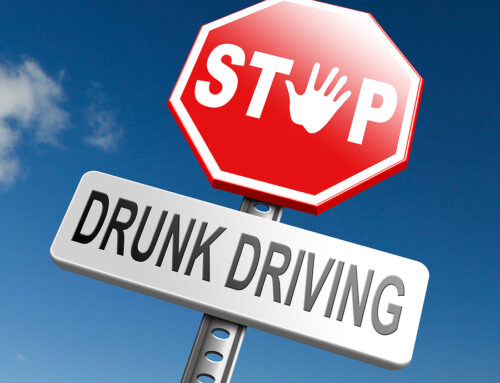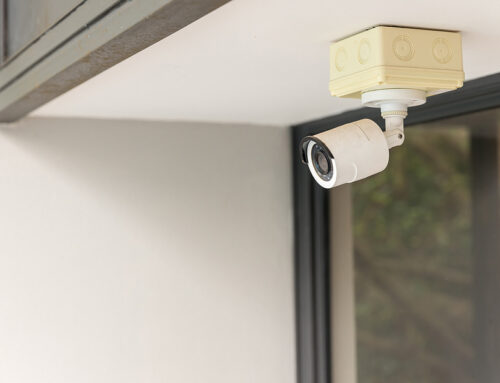Email me Report on the Top 10 Mistakes that Kill NJ Criminal Defenses Now!
Perfect! Just fill out the form below to make sure you check your email immediately to receive your report about the Top 10 Mistakes that Kill a NJ Criminal Defense!
The author Howard Lesnik is a board-certified criminal trial attorney by the NJ Supreme Court and handle NJ criminal cases on a regular basis throughout the entire State. Please contact me now by email, by phoning 908.264.7701, or by completing the form to the right to schedule your complimentary 30-minute strategy session, and to receive your complimentary report about hiring an NJ Criminal Law attorney now!
Introduction
Anyone who is charged with a crime can have their life turned upside down. Everything you take for granted –everyday activities, friends, family, hobbies, work, your hard-earned money, and most importantly – your freedom – can be taken from you in a blink of an eye. The stress and anxiety that go along with criminal charges can be devastating.
Most people just want the police, and the criminal charges, to immediately go away. People want the police to leave them alone and to return home. No one wants to go to prison – even for a night. No one wants to sit in a police station. One mistake or false allegation should not shatter your dreams.
Facing criminal charges may seem like a nightmare that you just want to disappear. They may go away eventually. But not overnight. You need to go into survival mode and immediately start your criminal defense in New Jersey. If you don’t, you can hurt your chances down the road when defending these charges in Court.

In Top 10 Mistakes That Will Kill Your Criminal Defense in New Jersey, board-certified criminal trial attorney Howard P. Lesnik will help you avoid common pitfalls that could hurt your defense when facing criminal charges.
- You Talked to the Police Officers
This is probably the biggest mistake made by anyone facing criminal charges. Regardless of whether you are guilty, innocent, falsely accused, or if there is a simple misunderstanding – do not talk to the police. Let me say that another way: Never Talk To The Police if you are charged or suspected of a crime. Just like you see on television, anything you say can and will be used against you. You have the right to remain silent for a reason. It is there to protect YOU! Make sure you use that right. It is a Constitutional Right. No one can take it away from you. Unless, of course, you talk to the police.
May people think they can talk their way out of it by explaining their side of the story. If you say something, rest assured it will be used against you.
- You Spoke With Someone Who is Not Your Attorney
It is only natural to seek reassurances and support when you are charged with a crime. You may want to seek comfort from people you can trust in your time of need. It is normal to confide in members of their family, friends and coworkers, when you have personal problems. However, legal problems are not the time to confide with people who are not experienced New Jersey criminal trial attorneys. The worst-case scenario is if you make a statement about the charges to someone who is not your attorney. This person can become a witness against you if the case goes to court. Even if the person does not want to be a witness, the prosecutor can subpoena him or her and force this person to testify. Failure to comply with a subpoena can leave the witness with legal problems.
- You Spoke To The Victim Or The State’s Witnesses
If you speak with the alleged victim or the prosecutor’s witnesses, you can be charged with witness tampering. This is a separate criminal charge on top of the initial criminal charges. You should have no contact with the accuser or any witnesses for the criminal investigation. This means you – or anyone acting on your behalf. You can have no direct or indirect contact. This also included contact on any social media platforms.
- You Agree To Submit To A Lie Detector With The Police
Lie Detectors are not admissible in New Jersey, unless they are stipulated to by the prosecutor. Therefore, if you pass, it may not be admissible in Court. However, the answers that you provide during the examination may be used against you. This may be a trick by law enforcement for you to speak or give a statement about your criminal charges. Do not think you can pass a lie detector examination in the police station in order to put the charges behind you or to get back home quicker.
- You Decided To Get Advice From a Non-Lawyer.
Again. Don’t do it. Whether you are spending a night in jail or waiting for your court date at home, do not seek advice from someone who is not a lawyer. Would you sign up for root canal for someone who isn’t a dentist? No. Would you undergo surgery with someone who isn’t a medical doctor? No way. Criminal Law is not a DIY do-it-yourself that you can learn how to do by watching a video online.
There are many people who have had criminal cases, motions and trials. It is fine for them to tell you about their experiences with criminal defense in New Jersey. But if you tell them something, and it is deemed an admission, they can be compelled to testify against you. Instead, speak to their lawyer. Even if you do not hire their lawyer, the consultation is confidential and protected by attorney-client privilege. Better, yet, you should consult with a board-certified criminal trial attorney.
- You Panicked and Tried to Destroy The Evidence
Do not think that you can just get rid of the evidence and make it disappear. Cell phone data cannot be erased. Computer data cannot be destroyed. Searches, downloads, and hard drives cannot be deleted. Computer forensics will recover anything you try to destroy.
Do not throw away the evidence. Then it will be considered “abandoned” and the police will not even need a search warrant to seize it. If you are caught on video attempting to conceal, destroy or hide evidence, the prosecutor can use this as evidence that you knew your own guilt. And of course, tampering with evidence can lead to additional criminal charges. This will give you more criminal problems, not less.
- You Decided To Waive Your Constitutional Rights
Your constitutional rights are there to protect you. And they are guaranteed by the law. Do not throw away your protections by waiving them. Many people believe that if they do not cooperate, they will look guilty. People are afraid that if they call a lawyer, they will look like they did something wrong. Pro-Tip: If an officer says you do not need a lawyer if you did nothing wrong, the officer is lying. Instead say, if I did nothing wrong, please leave me alone. Regardless of whether the officer leaves you alone, do not waive any rights.
DO NOT SIGN ANYTHING. I cannot tell you how many people come into my office every month and tell me that they signed something, but they do not know what it was. If you don’t know what it is, do not sign it. It can be a confession. It can be permission to search something. Make the officers obtain a search warrant. You cannot be penalized if officers have to obtain a warrant. Do you know why? Because the law requires officers to obtain warrants. Law enforcement officers are required to follow the laws they are paid to enforce. When officers do not follow the law, and make illegal or unconstitutional searches, I am here to file motions to suppress and keep the illegal evidence out of your case.
- You Discussed Your Case On Social Media
Anything you post on social media can be used against you if you make any admissions about your case. If you post something in public on the internet, it can be memorialized in writing, saved, and used against you at a later date. If you post something privately, the other person can be subpoenaed as a witness to testify against you. Again, if you contact or direct messages on any social media platform about the alleged victim, you can be charged with witness tampering.
- You Hired The Wrong Attorney For Your Criminal Defense in New Jersey
Back to the medical example. You may know a brain doctor that is smarter than a heart doctor. If you need heart-surgery, you are not going to have the brain surgeon operate on your heart. You are going to have the heart surgeon who specializes in open-heart surgery operate on you.
If you are facing criminal charges, you should not have a family law or divorce attorney represent you. You should not bring a real-estate lawyer to your criminal trial. And this is not a knock on divorce or real estate lawyers. If a client calls me for a child-custody hearing, I refer that to a family law attorney. If a client calls me for a closing on a home, I refer that to a real estate attorney. If you are facing criminal charges, you need to consult with a New Jersey criminal attorney.
- You Did Not Consult a Board-Certified Criminal Trial Attorney
Criminal Attorneys can be expensive. Nobody wants to spend their hard-earned money or their savings on fighting criminal charges. At the same time, nobody wants to go to prison. You cannot afford to go to court for criminal charges without an attorney. My office offers free 30-minute strategy sessions for anyone facing criminal charges. My consultations are confidential and there is no obligation to hire me for your criminal charges. I am board-certified by the New Jersey Supreme Court in Criminal Law.
Contact My Office Immediately
Retaining an experienced attorney for your criminal defense in New Jersey from the beginning of your case can make the difference in your criminal matter. If you are a family member were arrested for a criminal offense, contact me immediately so that I can review your charges from the very beginning. I can review your case and advise you as to all possible defenses to make sure that you are properly represented on your criminal charges. Please contact me now by email, by phoning 908.264.7701, or by completing the form to the right to schedule your complimentary 30-minute strategy session.







